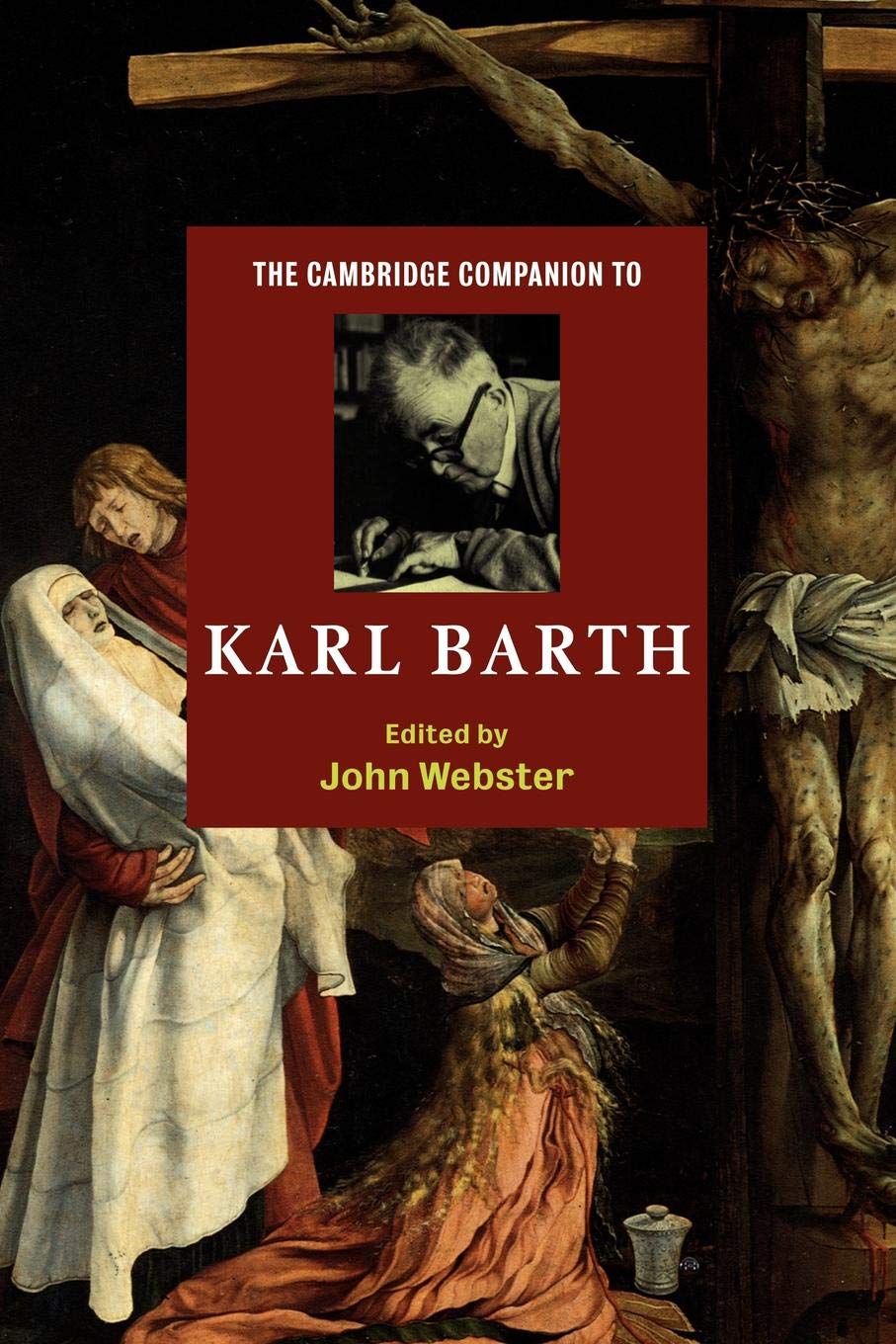Deliver to Vietnam
IFor best experience Get the App


The Cambridge Companion to Karl Barth (Cambridge Companions to Religion)
B**B
A SCHOLARLY CAMBRIDGE COMPANION THAT EXCELS:
A SCHOLARLY CAMBRIDGE COMPANION THAT EXCELS:You will never grasp Barth’s theology by relying on secondary literature “alone”. But; after having studied the primary material for yourself, you will be surprised to learn that this secondary volume should also be mandatory study. The editing here is excellent. Sixteen doctrines are presented in their proper systematic order and they are all handled in an admirable way. Do not skip around. Study the doctrines in “order”.And even the concluding essay on “Post-Modernism” was a solid scholarly treatment that you will not want to miss. By all means; study the “Church Dogmatics” first; but, then grab this volume to round-out your research. 5 huge stars for excellent work
C**R
Barth Speaks to the Postmodern Age .
This volume is a treasure trove of expositions of one of, if not, THE GREATEST THEOLOGIANS OF THE LAST COUPLE OF CENTURIES! they are all so good I hesitate to isolate one; however the entry on Barth and Postmodernism is my first choice. I think that Barth is perhaps THE theologian for the so-called Postmodern Age.
R**S
Five Stars
Excellent copy.
J**R
A Good Reference Source on Barth
Any book that attempts to summarize the thought of Barth in 300 pages is faced with an impossible task. Barth's thought was so exhaustive and trickled down into so many areas of theology and life that no summary can do complete justice to Barth. Nevertheless, this book puts forth a good effort toward that end.Webster has assembled many of the heavy hitters in Barth scholarship to tackle various key areas of Barth's thought. Trevor Hart provides a good chapter on Barth's view of revelation. Nigel Biggar's contribution on ethics is also good.The brewing scholarly battle between Graham Ward and Bruce McCormack concerning possible similarities between Barth and Derrida regarding language is not hinted at in the book. The reader only gets Ward's side of it, in which he argues that Barth's contention that human language is inherently incapable of describing the "wholly other" God finds a home in the later thought of Derrida. McCormack is on record saying that any similarities between Barth and Derrida are superficial, and in my view, McCormack is closer to the truth on this. However, this book does not present McCormack's position, and thus may very well give the reader the impression that Ward's position is the accepted position on this question within Barth scholarship. It is not.In addition, one would have hoped for a more in-depth treatment regarding Barth's relationship to Kantian philosophy. Given Barth's crucial importance chronologically in coming onto the theological scene in Europe at a time when the Kantian-influenced theologies of Schleiermacher and Ritschl reigned supreme, an understanding of Barth's intense reaction against both strains strikes me as critical in putting Barth into context and assessing him within this context. While Kant is mentioned more than once in this book, it is only in skeletal form, and this is a weakness. Putting Barth into the proper historical context is absolutely essential in assessing his importance, and this book could have been better at doing that.But overall, the contributions in here are scholarly, well documented, and informative for someone looking to gain a good working knowledge of Barth. Evangelicals need to contend with Barth responsibly, and we have been mostly neglectful in doing this. One way to do this is to read a book like this which attempts to thoughtfully interact with Barth from a mostly non-evangelical perspective. As such, I commend it to discerning evangelicals.
Trustpilot
1 week ago
2 weeks ago